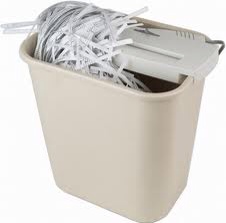 As noted in a previous post, Louisiana requires parties involved in litigation to avoid the intentional destruction of evidence for the purpose of depriving an opposing party of its use. While it is clear that such a duty exists to avoid the “spoliation of evidence,” does a party to litigation have an affirmative duty to preserve evidence from unintentional destruction?
As noted in a previous post, Louisiana requires parties involved in litigation to avoid the intentional destruction of evidence for the purpose of depriving an opposing party of its use. While it is clear that such a duty exists to avoid the “spoliation of evidence,” does a party to litigation have an affirmative duty to preserve evidence from unintentional destruction?
Before June 30, 2015, the answer was “maybe.” In Bethea v. Modern Biomedical Servs., Inc., 97-332 (La. App. 3 Cir. 11/19/97), 704 So. 2d 1233, the Louisiana Third Circuit Court of Appeal held that Civil Code Article 2315 requires just that. In Bethea, the plaintiff alleged that she suffered a shock when she plugged an IV pump into an electrical outlet. She initially sued the responsible medical supply firm, but later filed amended petitions against the hospital and its employees, claiming that an employee’s replacement of the allegedly defective plug constituted spoliation of evidence. The hospital defendants argued that Louisiana did not recognize a cause of action for intentional or negligent impairment of a civil claim when no statutory or contractual duty is imposed on the alleged party at fault. The court, however, rejected the hospital’s arguments. Relying on Louisiana Civil Code Article 2315, the court held that although there was no statutory duty imposed on the defendants in Bethea to preserve evidence and avoid hindering the plaintiff’s claim, a duty existed under Article 2315. Ultimately, the court held that the plaintiff had a viable cause of action against the defendants for spoliation of evidence.
However, the answer now is “probably not.” In Reynolds v. Bordelon, No. 2014-2362 (La. Jun. 30, 2015), the Louisiana Supreme Court held that Louisiana does not recognize a cause of action for negligent spoliation of evidence. Other remedies exist, however. As to parties to litigation, negligent spoliation can be redressed through the imposition of discovery sanctions and through an adverse evidentiary presumption. As to nonparties to litigation, those who fear destruction can enter into contracts to preserve evidence or seek court orders to preserve evidence.
